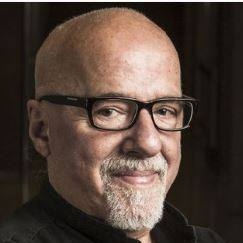Paulo Coelho was born in 1947 in Rio de Janeiro, Brazil, to middle-class parents who had conventional dreams for their son: become a lawyer or engineer, get a stable job, live a respectable life.
Paulo had different ideas. By his teens, he was deep in Brazil’s counterculture—hippie lifestyle, drugs, rock music, mysticism, rebellion against everything his parents valued.
His parents were horrified. And in 1960s Brazil, they had a solution: psychiatric institutionalization.
Between 1965 and 1967, Paulo’s parents had him committed to a psychiatric hospital three times. They believed his rebelliousness was mental illness that could be “cured.”
The experience was traumatic. Electroshock therapy. Medication. Confinement. All because he didn’t want to be what his parents expected.
When Paulo finally emerged from those institutions, he was more determined than ever to live on his own terms.
Through the 1970s, he pursued a bohemian life in Brazil. He wrote song lyrics for some of Brazil’s most popular musicians, becoming a successful lyricist. He worked as a journalist. He explored mysticism, magic, alternative spirituality.
He tried writing fiction but had limited success. His early novels went nowhere.
Then, in 1986, at age 38, Paulo made a decision that would change his life: he walked the Camino de Santiago.
The Camino—a 500-mile pilgrimage across northern Spain to the cathedral of Santiago de Compostela—is one of Christianity’s most ancient pilgrim routes. People have been walking it for over a thousand years, seeking spiritual transformation, penance, clarity.
Paulo walked it seeking… something. He wasn’t sure what.
The journey was brutal. Long days walking through heat, rain, exhaustion. Sleeping in pilgrim hostels. Carrying everything on his back. Physical pain. Blisters. Doubt.
But something happened during those 500 miles. Paulo reconnected with a spiritual dimension of life he’d lost. He experienced moments of profound insight. He felt signs, synchronicities, a sense of purpose.
By the time he reached Santiago de Compostela, Paulo felt transformed. He wrote about this experience in The Pilgrimage (published 1987), which became a cult hit among spiritual seekers.
But the Camino had given him something else: the seeds of his next book.
During and after the pilgrimage, Paulo became obsessed with certain ideas: that everyone has a “Personal Legend”—a destiny they’re meant to fulfill. That the universe sends signs to guide those who pursue their purpose. That the journey toward your dream is as important as achieving it.
These weren’t abstract philosophical concepts for Paulo. They were truths he’d experienced walking across Spain.
Then he encountered a short story by Argentine writer Jorge Luis Borges—a retelling of an ancient folk tale about two dreamers.
In the story, a man dreams of treasure buried in a distant land. He journeys far to find it. There, he meets another man who’s dreamed of treasure buried back where the first man came from. They realize: the treasure was always at home, but they had to journey away to understand its value.
This story electrified Paulo. It crystallized everything he’d been thinking about: the journey outward that leads inward, the treasure that’s always been there, the necessity of the quest itself.
He decided to write a book.
It was 1987. Paulo sat down and wrote The Alchemist in approximately two weeks.
He later said the book was “already written in his soul”—he was just transcribing it. The story poured out: Santiago, the Andalusian shepherd boy who dreams of treasure at the Egyptian pyramids. His journey across North Africa. The alchemist who teaches him to listen to his heart. The discovery that his treasure was back home all along, but he had to journey to the pyramids to find it.
The book was simple. Parable-like. A fable that read like an ancient wisdom text but was completely original.
Paulo took the manuscript to his publisher in Brazil. They published it in 1988.
It flopped.
The first print run was small. Sales were disappointing. Reviews were mixed. The publisher, seeing no commercial potential, dropped the book from their list.
Paulo was devastated. He’d poured his spiritual awakening, his Camino insights, his deepest beliefs about destiny and purpose into this book. And it had failed.
But Paulo believed in The Alchemist with absolute conviction. He found a new publisher willing to take a chance.
And then something remarkable happened: word of mouth.
One person read The Alchemist and told a friend. That friend told another. Slowly, organically, the book began spreading. Not through marketing. Not through reviews. Through readers who felt the book had spoken directly to their souls.
By the early 1990s, The Alchemist was a cult phenomenon in Brazil. Then it spread to other Portuguese-speaking countries. Then it was translated into Spanish, and it exploded across Latin America.
In 1993, an English translation appeared. It became an international bestseller.
By the late 1990s, The Alchemist was selling millions of copies annually. It was translated into dozens of languages. It appeared on bestseller lists worldwide.
Today, it’s sold over 150 million copies. It’s one of the most-translated books in history. It’s been continuously in print for over 30 years.
Presidents quote it. Celebrities recommend it. Teachers assign it. People give it to graduates, to friends going through transitions, to anyone seeking meaning.
The book’s message is simple: Follow your dreams. Listen to your heart. The universe conspires to help those who pursue their Personal Legend.
Critics sometimes dismiss The Alchemist as simplistic, as new-age platitudes dressed up as wisdom. But millions of readers have found something profound in its pages.
Because Paulo Coelho wrote from lived experience. He’d been institutionalized for refusing to conform. He’d walked 500 miles seeking spiritual truth. He’d experienced synchronicities, signs, moments when the universe seemed to guide him.
And he’d persisted with The Alchemist even after it was rejected and dropped by publishers—because he believed in it absolutely.
The story of The Alchemist’s creation mirrors its message: Paulo had a dream (write a book that changes lives), he faced obstacles (institutionalization, rejection, failure), he persisted, and eventually the universe conspired to make his book a global phenomenon.
Whether you believe in Personal Legends or think it’s metaphorical doesn’t matter. The fact remains: Paulo Coelho was a failed writer whose book was dropped by its publisher. Through word-of-mouth and persistence, that book became one of history’s bestsellers.
He was institutionalized for being different. He wrote a book in two weeks about following your dreams. The first publisher dropped it.
Now, 150 million people have read it.
That’s not just a publishing success story. That’s proof that sometimes—just sometimes—when you refuse to give up on what you believe in, impossible things happen.
Paulo Coelho walked 500 miles across Spain seeking purpose. He found it. Then he wrote it down.
And millions of people, walking their own journeys, have found his words waiting for them.

